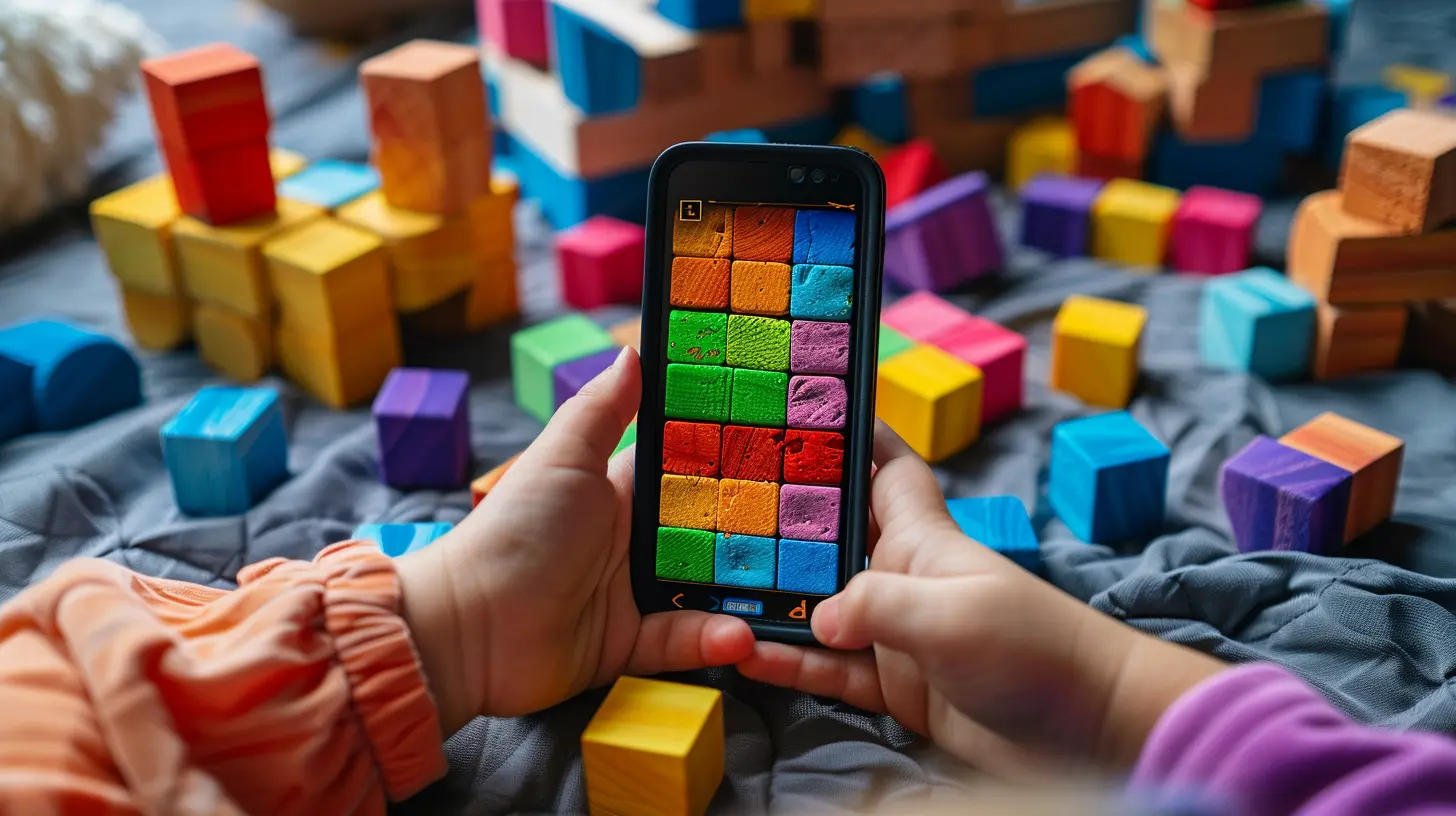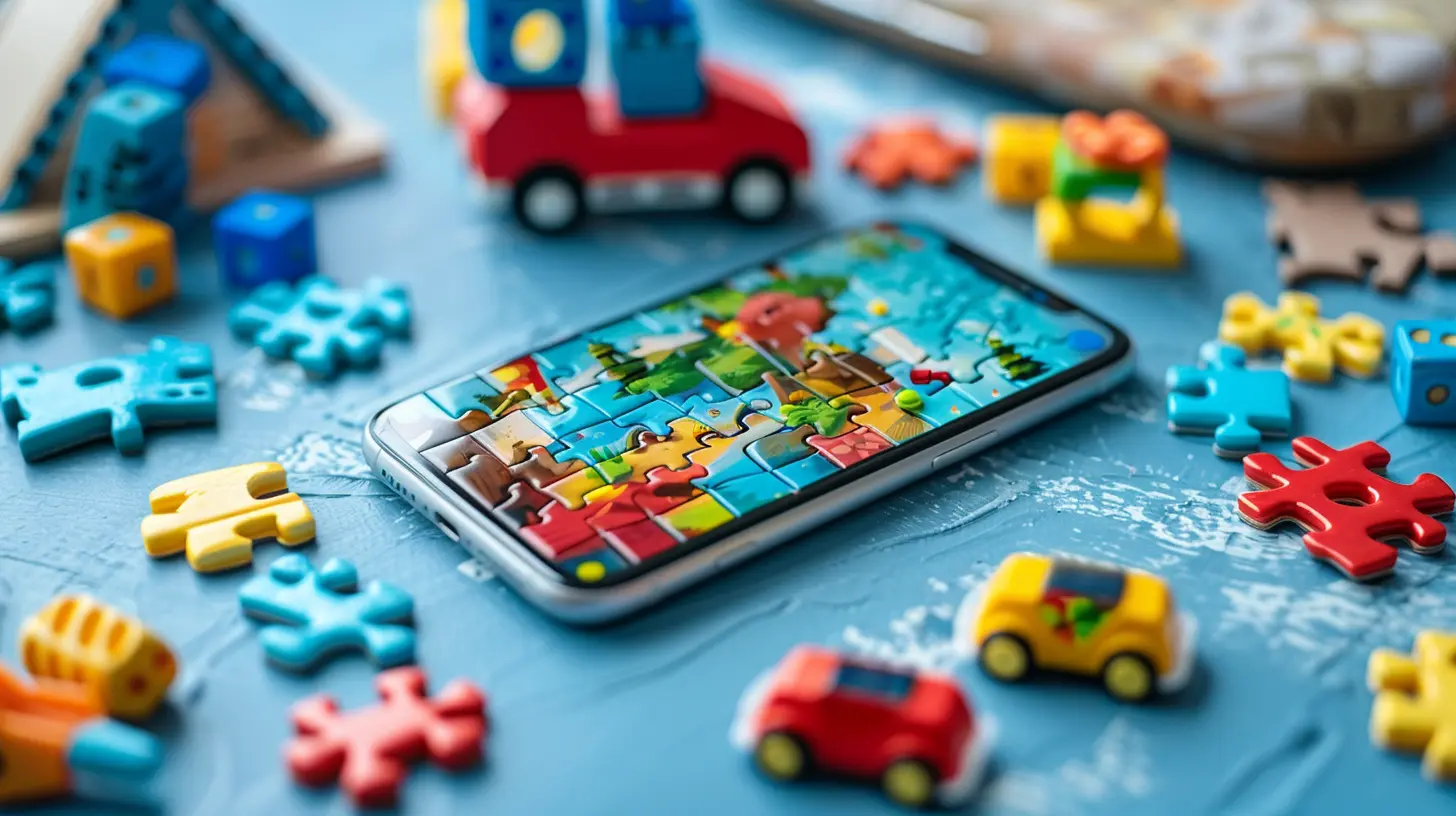Why Puzzle Games are So Addictive on Mobile
14 September 2025
Ever picked up your phone just to kill five minutes, only to find yourself lost in a puzzle game for an hour? Yeah, me too. Puzzle games have a way of pulling us in, chewing up our free time, and making our brains do mini marathons—yet we love every second of it. But why are these seemingly simple games so darn addictive? Let’s dive into the chaotic, dopamine-fueled world of mobile puzzle games and what makes them impossible to put down.

The Science Behind the Addiction
So, what’s the deal? Why do our brains light up like a Christmas tree every time we complete a level? Turns out, puzzle games check all the right boxes when it comes to psychological appeal.1. That Sweet, Sweet Dopamine Hit
Every time we swipe the right candy in Candy Crush or find that one missing word in a crossword, our brains reward us with a tiny shot of dopamine. It’s the same chemical responsible for making us feel good when we eat chocolate or get a compliment. Basically, puzzle games trick our brains into thinking we’re accomplishing something meaningful—which, let's be honest, sometimes we really need.2. Instant Gratification
Unlike real-life problems (like doing taxes or folding laundry), puzzle games give us instant feedback. You solve something? Boom. A shiny animation, a satisfying ping, maybe even some fireworks. This immediate reward system keeps us hooked because we always want that next little victory.3. The Need for Closure
Ever notice how you can't stop playing until you “just finish this level”? That’s called the Zeigarnik Effect—our brains hate unfinished business. Puzzle games dangle that next challenge in front of us like a carrot, making it nearly impossible to walk away.
Why Mobile is the Perfect Playground for Puzzle Games
Puzzle games have been around for ages (hello, Sudoku and crosswords), but mobile has taken the addiction to a whole new level. Why? Because our phones are basically an extension of our hands at this point.1. Always Within Reach
Puzzle games thrive on convenience. Whether you're standing in line, waiting for your coffee, or avoiding actual responsibilities, your phone is right there, begging you to play. And since most puzzle games are designed to be played in short bursts, they fit perfectly into our modern, impatient lifestyles.2. Easy to Learn, Hard to Master
Most puzzle games come with a simple premise—match three colors, connect the dots, slide the tiles. But as you progress, the difficulty ramps up just enough to keep you challenged without making you throw your phone in frustration (well… most of the time).3. Minimal Commitment, Maximum Engagement
Unlike complex RPGs or strategy games that require hours of dedication, puzzle games let you jump in and out whenever you please. No tedious tutorials, no long-winded cutscenes—just straight-up brain-teasing fun.
The Sneaky Psychological Tricks Puzzle Games Use
Developers are no strangers to the psychology behind gaming addiction. They’ve fine-tuned their games using subtle (and sometimes not-so-subtle) science-backed tricks to keep us glued to our screens.1. Progress Bars and Levels
Ever notice how satisfying it is to complete a level and see that little progress bar fill up? That’s because our brains crave goal completion. Whether it’s reaching a new high score or unlocking a new stage, we’re wired to chase that sense of achievement.2. Limited Lives and Energy Systems
Some games, like Toon Blast and Homescapes, cap the number of times you can fail before you have to wait (or, you know, pay up). Instead of making us put the game down, this actually makes us want to play more. The more we’re denied something, the more we want it. Classic reverse psychology.3. Social Competition
Many puzzle games integrate leaderboards, friend challenges, or even direct multiplayer modes. There’s nothing like seeing your friend’s high score and thinking, “Oh, absolutely not—I’m beating that.” A little friendly rivalry goes a long way in keeping us engaged.
The Role of Aesthetics and Sound
You wouldn’t think visuals and sound matter that much in a puzzle game, but oh boy, do they.1. Bright Colors and Smooth Animations
Aesthetics play a huge role in engagement. The satisfaction of seeing gems explode in Bejeweled or blocks disappear perfectly in Tetris is a big part of the experience. Ever wonder why these games always feature bold, vibrant colors? Because they’re designed to be visually stimulating and, well… pretty.2. Satisfying Sound Effects
That little click, pop, or chime when you complete a move? That’s intentional. Developers use auditory feedback to make actions feel more rewarding. It’s like getting a tiny round of applause every time you do something right.3. Calming Yet Engaging Music
Puzzle game music is usually upbeat yet non-intrusive—something that keeps you engaged but doesn’t distract you too much. It’s the perfect balance to help you slip into a flow state where time ceases to exist (and suddenly, it’s midnight, and you’re still playing).Why We Keep Coming Back for More
Despite knowing all of this, we still keep opening our go-to puzzle games like clockwork. Why? Because they fill a unique niche in our digital habits.- They help us relax while keeping us engaged. Perfect for winding down but not feeling completely unproductive.
- They give us small victories. Let’s be real—sometimes, a game level is the only thing we’ve accomplished all day.
- They’re nostalgic. Many modern mobile puzzle games are just clever updates on classics like Tetris, Minesweeper, or traditional jigsaw puzzles.
- They tap into our problem-solving nature. Humans love solving problems, even if that "problem" is just figuring out where to move a virtual block.
So, Should You Quit Puzzle Games?
Absolutely not. Unless they’re interfering with, you know, real life. But in moderation, puzzle games are actually beneficial. They keep our brains sharp, help with problem-solving skills, and even reduce stress. Plus, let's be honest—sometimes, you just need an excuse to procrastinate without fully wasting time.So the next time someone catches you playing 2048 or Two Dots for the hundredth time, just tell them you’re "exercising your cognitive functions." Sounds fancy, right?
all images in this post were generated using AI tools
Category:
Mobile GamingAuthor:

Jerry Graham
Discussion
rate this article
1 comments
Esme Rodriguez
Puzzle games are like potato chips for your brain—you just can’t stop at one! They’re the perfect combo of ‘I’m smart’ and ‘I’ve got five minutes to kill.’ Bring on the brain snacks!
September 23, 2025 at 11:31 AM

Jerry Graham
Absolutely! Puzzle games offer a satisfying mix of challenge and quick gameplay, making them the ideal brain snacks for short bursts of fun.


